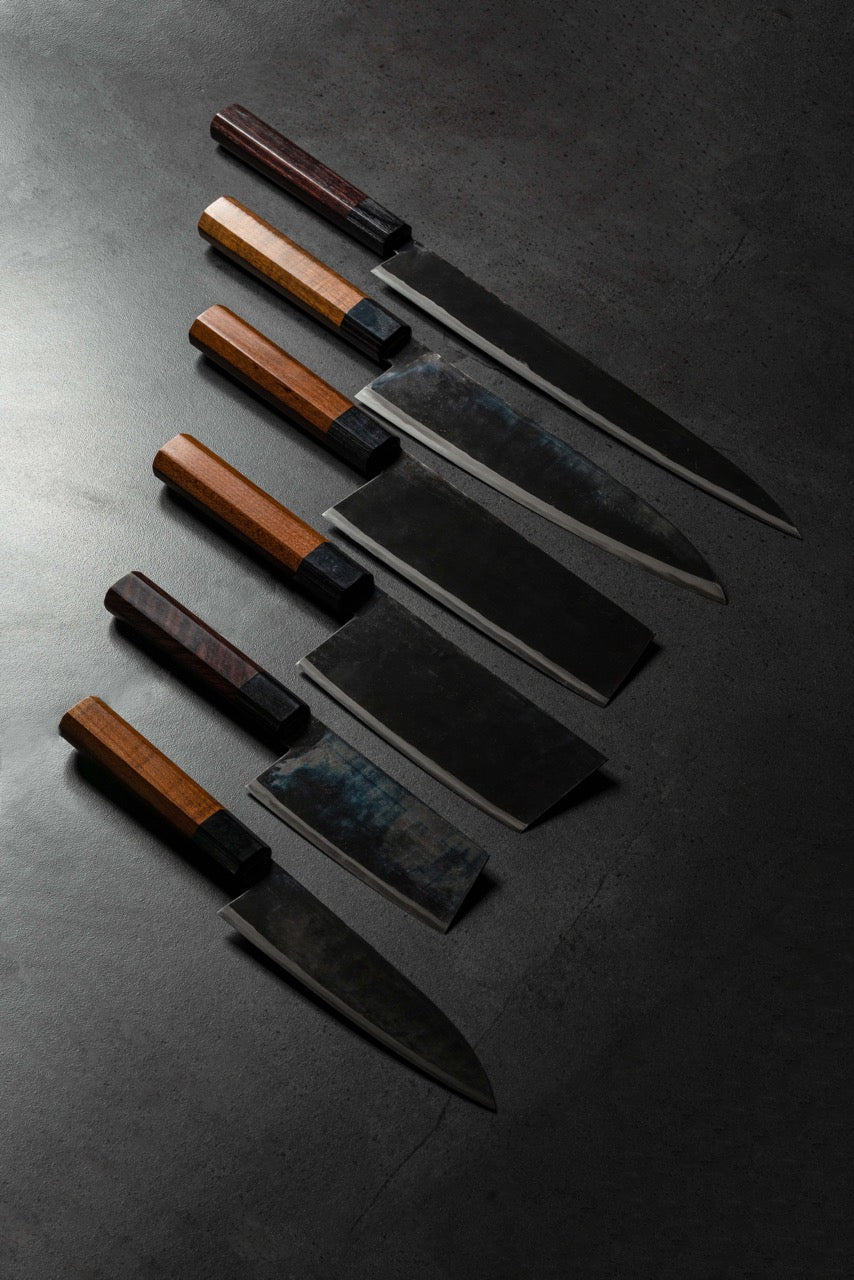
Hitohira Tanaka Kyuzo Aogami #1 Kurouchi Gyuto 240mm Yakusugi (Extra Height)
Description
The Japanese word Gyuto (牛刀) literally translates to beef sword. The gyuto is the equivalent of the Western chef's knife, and is designed to cut everything: vegetables, meats and fishes. It is made to be used with the push-cut method, lifting the blade between each cutting motion, or with the rocking motion method. It is important that the blade is straight upon impact with the cutting board to avoid damage to the knife edge.
The Aogami #1 by Hitchachi steel co translates to blue steel #1. It was named after the color of the paper in which the steel is packaged at Hitachi steel co. This steel has the same carbon content as Shirogami #1 (1.25-1.3%), but in addition tungsten and chromium are added to the composition. This improves corrosion resistance, wear resistance and cutting edge retention. It is considered by many to be the best steel for single bevel blades.
Tips for best results
Make sure your knife will deliver its absolute best by having it professionally sharpened at least once a year. Please note that our meticulously handcrafted Japanese knives are – unless otherwise noted – carbon steel and not stainless steel. To prevent rust, make sure the blades are patted dry – especially when cutting acidic items. Never cut frozen foods, hard products, bone, or twist the blade when using. Never soak in water after use or put in the dishwasher. After use, store in a cool, dry place and avoid high temperature fluctuations.
Our commitment to you – our customers
Warranty
Every knife we carry has a lifetime warranty from manufacturing defects and errors. For example, if the handle becomes detached or cracks appear after a few weeks of proper use. Or if there are any blade cracks from the edge to the spine. While such defects are indeed rare, they can occur. In such cases, we will exchange the knife in question or give you a refund. Each warranty case is different depending on the criteria, and we reserve the right in each and every case to evaluate the applicability of our lifetime warranty in the event of any manufacturing defects and errors.
After-Sales service
Do you get the feeling that your knife just can’t “cut it”?
Each knife we carry is supplied with a so-called “factory edge”. Our chef knife range comprises more than 200 different products. While all our handcrafted Japanese knives ship with a “factory edge”, ultimate blade sharpness can vary. If you feel that your knife’s blade edge is not performing to its full potential, feel free to contact us and we will provide you with professional sharpening for free!
Oops! What about the truly Unthinkable?
Was it just through a slight slip of the hand that your knife accidentally fell on the floor and damaged its tip and blade, or it was used to cut a hard, frozen product and chipped? Don’t despair, get in touch with us and we will solve the problem through our in-house, professional sharpening and repair service.
Simply contact us or visit our store to get a free estimate.








